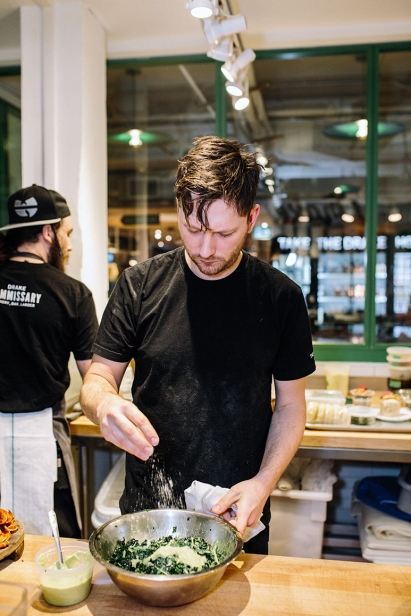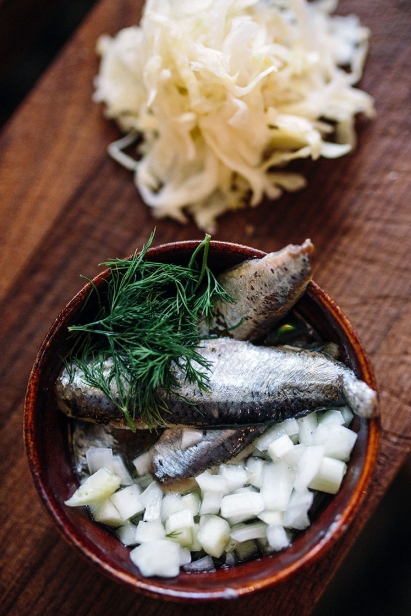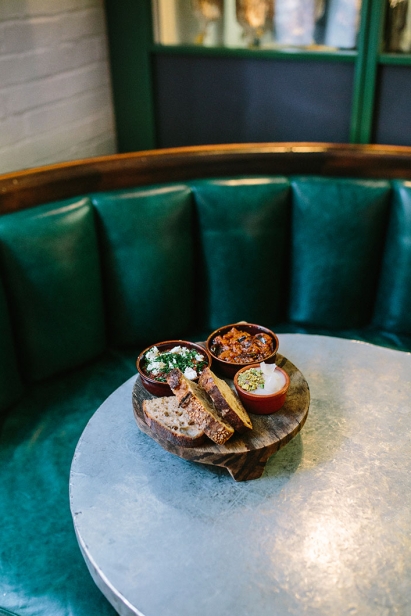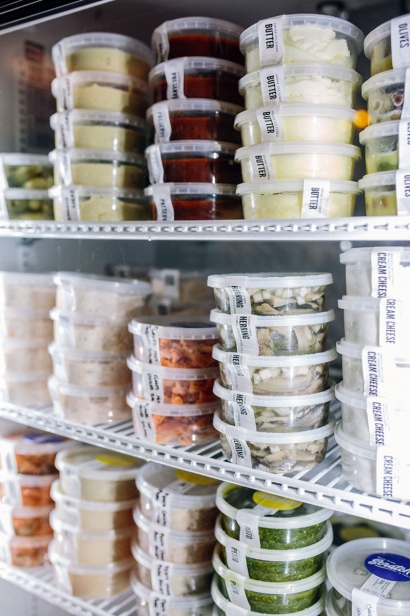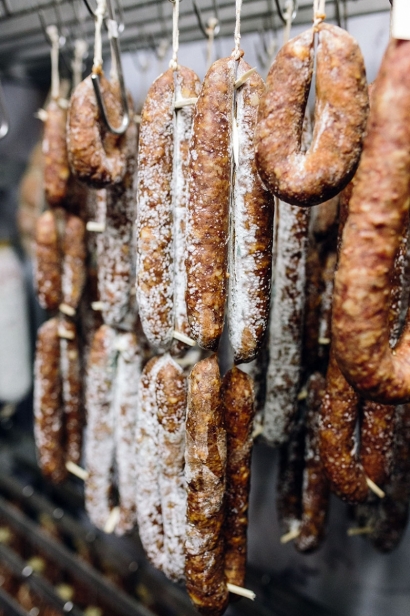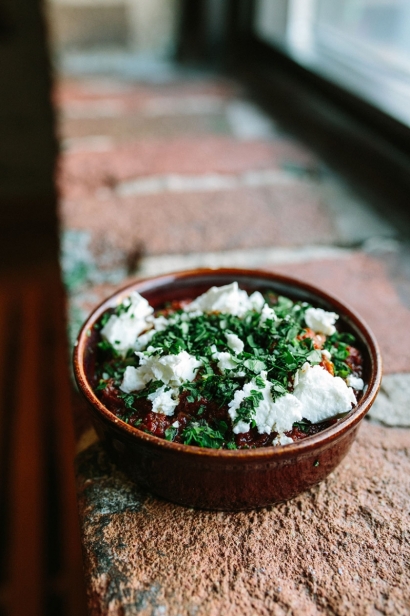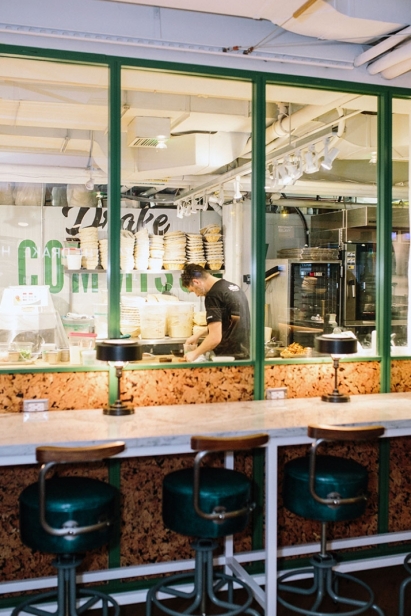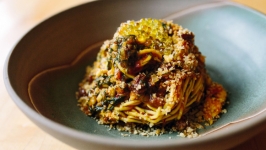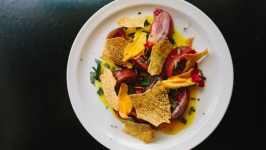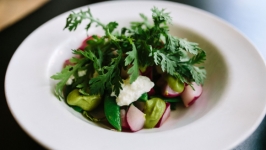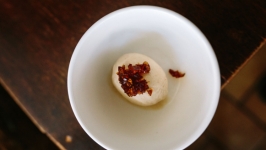Stirring up Flavour
You could say Drake Commissary is a cultured establishment, but don’t call it refined. Since opening last June, the 5,000-square-foot kitchen helmed by Chef Jonas Grupiljonas has been a hotbed of fermentation, free of over-zealous refining and industrial processing.
Grupiljonas is using methods developed over thousands of years to come up with an imaginative group of fermented or “cultured” foods that add complex flavours to dishes at Drake Commissary on Sterling Road, as well as the other Drake properties, including Drake Devonshire in Wellington, Ont., Drake One Fifty, The Drake Hotel and the new Drake Mini Bar in Toronto.
“I’ve been reading about the techniques and working with local farmers as well as the chefs at each of the Drake properties. It’s a collaborative effort,” Grupiljonas explains.
“We get together every three months and think ahead about what will be in season and how [we’d] like to use those ingredients,” he says, adding that many of the items seen at the Drake properties are made at the commissary. The Sterling Road location is the production hub for staples, such as fresh bread, pastries, charcuterie and pasta. Fermented foods are the latest addition to the roster and the list is long.
Making all these foods — from black garlic dressing, sauerkraut, fermented chili sauce and farmer's cheese, to a variety of meats, including salami spotted with fermented peppers — is time-consuming and often requires a wait and watch approach, but it’s all worth it. “I like how fermenting can develop more interesting flavours — sweetness, sourness and more complexity,” Grupiljonas says. But diners can sometimes get confused between the terms fermented and pickled.
Pickling usually preserves food in vinegar and high heat can also be involved in the process. Sterilization kills dangerous bacteria, but that high heat can also kill friendly lactic-acid bacteria, a form of probiotics.
Fermented foods, on the other hand, do not undergo high heat, are self-preserving and full of gut-friendly bacteria that can aid in digestion. “They start to break down the food before you even start eating it. It saves your stomach time,” Grupiljonas says.
For some foods, the process involves the ingredients to be packed in a mixture of salt and water. Instead of going bad over time, the food creates its own preservative, lactic acid. Starches and sugars are converted into lactic acid by bacteria, either naturally occurring or by inoculation.
Just to complicate the issue, some fermented foods can also be pickled, such as the Drake Commissary’s pickled herring. And some pickles, such as the old-fashioned sour dills you’ll find in many Jewish delis, are produced through fermentation — cucumbers packed in a barrel of saltwater brine.
Grupiljonas, who has a Polish background, was always comfortable making fermented foods, such as sauerkraut, but he learned to pickle herring while working at Bar Tartine in San Francisco four years ago.
“Seeing how they did it informs what we do here, but it isn’t exactly the same,” he explains. “We put the herring in a salt pack for six weeks. The salt draws the moisture out of the fish and it ends up sitting in a salty brine. The enzymes from the blood make the meat more tender. Then we make a pickling liquid of apple, fennel and dill and pour it over the fish.”
The result is a delicate, slightly salty fish bursting with flavour and containing none of the vinegary bite found in commercial versions. At Drake Commissary, many of the fermented items are found in dressings and sauces, some of which are available for sale in the larder, a section of the restaurant devoted to house-prepared foods and meals that are ready to eat. Fermented chili sauce is made with seasonal fruit and chili peppers, while the lemon vinaigrette uses lemons that have been packed for six months in salt and sugar. When the citrus liquid leaches out, the result is a tangy, preserved fruit with no bitter aftertaste.
The black garlic dressing is served with Asian vegetables such as gai lan, or Chinese broccoli. Popular in Asian countries, black garlic is garlic that has been warmed for several days until the sugars caramelize and turn the cloves' flesh black. The garlic’s sharpness mellows, and the remaining flavours are sweet and syrupy, akin to balsamic vinegar.
Some of the commissary’s fermented foods fit together hand-in-glove. Freshly baked sourdough bread — soft, moist and sweet — is delicious when slathered with creamy farmer's cheese. The texture of ricotta, farmer's cheese is made from milk and cream that sits at room temperature until the curds separate from the whey and then it is gently heated. “It gets more sour the longer you leave it at room temperature,” Grupiljonas explains.
Even the commissary butter undergoes a type of fermentation. “We take cream and add a bacterial culture. It’s left at room temperature, covered with cheese cloth. We taste it daily to see if has the right sourness and silkiness. In three days, it’s ready,” Grupiljonas says.
The final product is “more expensive than commercial butter, but we know where it comes from,” he explains.
Drake Commissary takes pride in forging relationships with the people who produce the ingredients they use, from local farmers to brewers. Trusted suppliers include Fisherfolk and Cumbrae’s in Toronto, Homestead Eggs in Newmarket, Ont. and Prizen Farms in Bloomfield, Ont.
With a next-door neighbour such as Henderson Brewing Co., Grupiljonas couldn't resist incorporating its beer into his barrel-aged mustard. “We soak the mustard seeds for three or four weeks in beer, then purée and strain them, then add maple syrup and cider vinegar. The sweet and the sour balances out the bitterness of the mustard seeds.”
As well as providing great flavour and health benefits, fermented foods have a practical aspect. They tend to have a long life. “Food waste is a concern for us. It is something I want to avoid as much as possible,” Grupiljonas says. “I know cured foods will be good the next day.”
Drake Commissary
128 Sterling Rd., Toronto, Ont.
drakecommissary.ca | 416.432.2922



